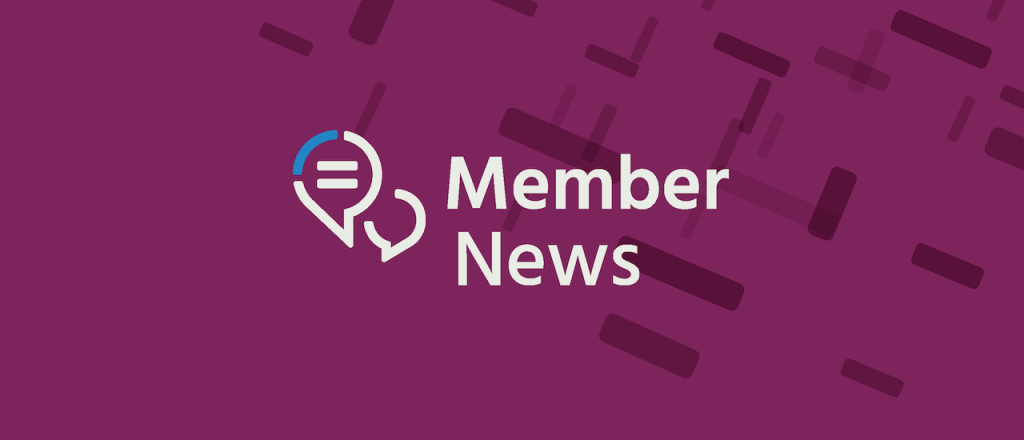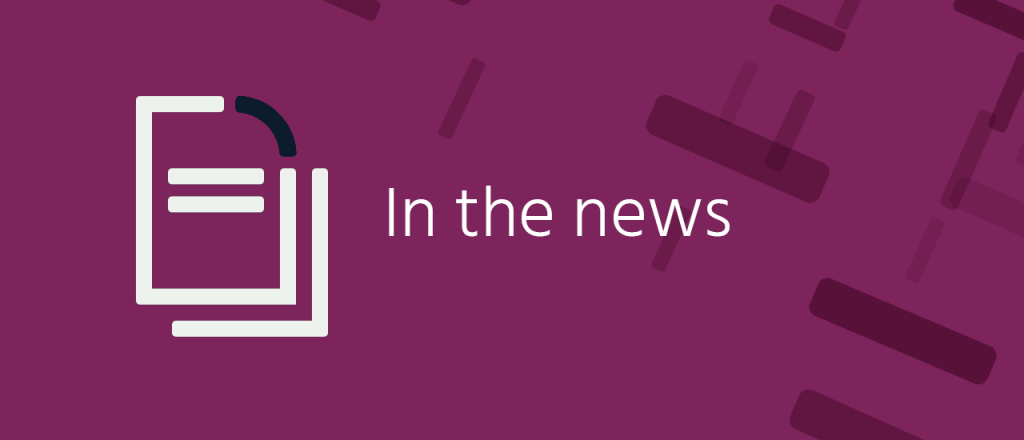Author Archives: Grant Gross
Author Archives: Grant Gross

Taking advantage: Cyberattackers are reconfiguring the Remcos trojan, which allows them full access to victims’ computers, to include COVID-19 warnings in spam and phishing emails, Security Boulevard reports. “With the economy directly affected by the pandemic, people pay more attention to emails pretending to offer solutions, loans and other types of financial support. Another effective approach is to scare people with threats of account closures or company furloughs.”
The impact of a shutdown: An ongoing phone and Internet service shutdown in the Kashmir region is hurting the ability to distribute information and supplies during the COVID-19 pandemic, Greater Kashmir says. “People in need of essentials used to reach out to us on our helplines which have turned defunct,” said the chairman of an aid agency. “We used to make phone calls to our existing 750 beneficiaries for conveying them about timings to pick up their quota of essentials. But suspension of mobile networks has disturbed this entire process.”
Cooperative Internet service: The Christian Science Monitor has a story about small rural cooperatives building their own Internet services. Cooperatives, which are private businesses owned by customers, are common in parts of the U.S. Midwest, some providing electricity and Continue reading

Searching for a signal: CNN has a story about a teacher in rural Virginia who drives 20 minutes to find a good WiFi signal in order to work. The middle school history teacher is one of about 18 million U.S. residents who lack access to high-speed broadband, according to the Federal Communications Commission. The teacher “lives in a valley between two mountains, where the only available home internet option is a satellite connection. Her emails can take 30 seconds to load, only to quit mid-message. She can’t even open files on Google Drive, let alone upload lesson modules or get on a Zoom call with colleagues.”
Demanding access: Meanwhile, in Oakland, California, hundreds of teachers and students are calling for free access to the Internet, demanding that the school district and mayor “take all necessary measures” to ensure that students have access, KTVU reports. “There is no equity in education for our most vulnerable students if all Oakland families do not have access to the internet,” said Keith Brown, president of the Oakland Education Association, said.
Legislating access: In the U.S. Congress, Senate Democrats are introducing a bill that would create a new $4 billion fund for schools Continue reading

Equipment shortages: As schools in the U.S. and other countries attempt to switch over to virtual learning during the COVID-19 pandemic, some are still trying to get students Internet access or devices to use to access the Internet. In Chicago, only about half of the 115,000 public school students who need a computer have received one, WBEZ reports. Another 43,000 computers will be handed out, and 10,000 have been ordered and will be coming “over the next few weeks.”
Equipment shortages, part 2: In California, the state is planning to distribute laptops, Chromebooks, or tablets to more than 70,000 students so they can participate in distance learning, MercuryNews.com reports. The state has requested funding and devices from companies, business leaders and philanthropists around the state.
Getting creative: Some schools are exploring alternatives when students don’t have Internet access or devices, NBC News says. A teacher in Tennessee turned to using a copy machine to print out packets and mail them to students. In Arkansas, where 23 percent of households lack Internet service, a local PBS affiliate is providing daily television programming tied to the state’s distance learning curriculum.
Pumping up encryption: Popular video conferencing app Zoom will Continue reading

The great divide: The continuing digital divide in the U.S. is hurting people as they try to shop, attend school, and work during the coronavirus pandemic lockdown, The Guardian says. Broadband Now estimates that 42 million U.S. residents don’t have Internet access, and M-Lab says that the majority of residents in 62 percent of the counties across the U.S. don’t have adequate broadband speeds.
The struggle is real: Meanwhile, students in rural Alabama are struggling to complete their schoolwork because a lack of Internet access, according to an Associated Press story at Enewscourier.com. In nine Alabama counties, less than 30 percent of the population has access. “We don’t want to leave 20 to 30 percent of our population behind just because of where they live,” said John Heard, school superintendent in Perry County.
The good news: Even with many people across the world working from home or attending school from home, the Internet is holding up, ZDNet reports. Fastly, an edge cloud computing provider, found that in the hard-hit New York and New Jersey area, Internet traffic jumped by nearly 45 percent in March, but download speeds decreased by less than 6 percent. In California, traffic Continue reading

Staying connected: Several Internet Society Chapters are focusing on ways to help people stay connected while living under stay-at-home orders or following social-distancing guidelines related to the COVID-19 pandemic. The Netherlands Chapter has released a toolbox of open source tools to help people work from home.
Resources for the people: Meanwhile, the Dominican Republic Chapter has released a list of COVID-related resources for residents. The list includes information on virtual private networks, on teleworking, and on the country’s cybersecurity resources. The Chapter also released a set of recommendations for the government, for Internet service providers, and for other companies. For example, the Chapter recommends that ISPs offer flexible or low-cost service plans to customers during the pandemic.
Pandemic privacy: One of the many concerns during the COVID-19 pandemic is a loss of privacy as governments and private organizations track mobile phones as a way to monitor the spread of the virus and the effectiveness of social-distancing programs. The Canada Chapter notes that the pandemic has raised fears about the surveillance state. In Canada, the prime minister has ruled against cell phone surveillance for tracking the spread of the virus, but “if the virus rapidly spreads further, no doubt device tracking Continue reading

No working from home: Working from home during the COVID-19 pandemic is tougher in some places than in others. Business Insider finds 17 U.S. cities where Internet access is lower than in much of the rest of the country. Many of the cities listed are across the South and in New Mexico.
Students need access: Alabama’s state schools superintendent is worried about a lack of access for some students while schools are shut down during the pandemic, AL.com reports. There are several “gaps” in access for students, but some school districts are using buses to deliver WiFi.
100,000 laptops: Meanwhile, in Arizona, more than 100,000 students need laptops in order to do school work from home, AZcentral.com reports. The Greater Phoenix Chamber Foundation has been running a laptop drive to reduce that number. Access is also a problem in some rural areas, with some areas having only 25 percent of households with Internet access.
Fundraising for access: In Maine, the Bangor School Department has turned to fundraising to provide 350 families with Internet access so students can participate in distance learning, the Bangor Daily News reports. The school department raised about $28,000 in a week on the Continue reading

More important than ever: With most people in the U.S. and many other countries ordered to stay at home to prevent the spread of the coronavirus, a lack of Internet access in rural and poor areas is making people feel more disconnected than ever, according to an Associated Press story at NWAonline.com. Stella Ashcraft “lives from check to check and can’t afford internet. Her senior-citizen center, where she plays bingo, does puzzles and gets lunch five days a week, is closed. So is her church and the library where she checks email. ‘I feel very withdrawn, isolated, alone,’ she said.
Spotlight on Zoom’s privacy: With many people working from home, web-conferencing app Zoom has become a crucial service for many. However, with the increased use of Zoom is also coming increasing scrutiny. While the company has marketed its service as offering end-to-end encryption, that’s not really the case, The Intercept reports. Zoom Video Communications, the company behind Zoom, has been hit with a class-action lawsuit for allegedly sharing user data with Facebook, CBS News adds. Finally, Zoom has pledged to focus on privacy and security issues, TechXplore reports.
Homework hotspots: As most students in the U.S. and Continue reading

Networked virus: U.S. Senator Mark Warner has raised concerns about cyberattacks targeting Internet connectivity while many people are working from home due to the COVID-19 outbreak, The Hill reports. Warner, vice chairman on the Senate Intelligence Committee, wrote letters to network device vendors asking that they pump up the security of their products.
Sharing the WiFi: The U.S. Federal Communications Commission will allow schools and libraries to share their WiFi connections with the surrounding communities during the coronavirus pandemic, a change in the normal FCC policy about their WiFi networks, KRCRTV.com reports. Schools and libraries can set their own WiFi-sharing policies, the FCC said. Meanwhile, some libraries want to extend their WiFi networks using bookmobiles, Vice.com says. It’s unclear if FCC rules allow this expansion of service, however.
Tracking you and the virus: Some countries are tracking the coronavirus outbreak by tracking residents’ mobile phones, Science Magazine says. However, tracking phones also raises privacy concerns. “We don’t live in a culture of public trust when it comes to data,” says David Leslie, an ethicist at the Alan Turing Institute. “We live in this age that has been called the age of surveillance capitalism, where … our Continue reading

Ready, set, launch: An Internet Society Chapter launched recently in Ethiopia, with a goal of advocating for the development and expansion of open, secure, trustworthy, and affordable Internet access to everyone in the country. The idea of starting an Internet Society Chapter came from a workshop, “where we became conscious of the fact that more than 85% of the Ethiopia population is losing countless opportunities every day because they don’t have access to the Internet,” wrote Adugna Necho, a networking professor at Bahir Dar University. “We believe the Internet is for everyone and we are here to work with all people – from communities to businesses to governments and ordinary people to connect the unconnected and create a bigger and stronger Internet in Ethiopia.”
More Internet, please: The Internet will keep people connected while the world deals with the coronavirus pandemic, the India Chennai Chapter notes. Governments should resist urges to shut down service, the Chapter says. “With factories, offices, public places, transportation, schools are colleges shut down, and no clear picture of whether normal life would resume in 4 weeks or 4 months, it is the Internet that could make life go on,” the Chapter writes. “While it is Continue reading

Connecting online: Many libraries and authors are offering online reading sessions during recommended social distancing due to the spreading coronavirus, says Timeout.com. The article offers a list of online reading activities.
WiFi on the bus: The Charleston County School District is deploying WiFi enabled buses across its school district to bring Internet service to students stuck at home because of coronavirus-related school closings, Live5news.com reports. The WiFi on the buses has a range of up to 150 feet.
Addressing access: Other organizations are taking several steps to help students and other people who don’t have Internet access while away from school or work. Several Internet service providers are providing free WiFi service for several weeks, Boston.com reports. Boston Public Schools are also offering computers and Internet access to students. In addition, several Internet and cable companies are promising to not cut off access for unpaid bills, BangorDailyNews.com reports.
Fake virus news: Twitter will be removing harmful news related to the coronavirus outbreak, TheGuardian.com reports. Among the tweets it will remove: Denial of health authority recommendations “with the intent to influence people into acting against recommended guidance,” like encouraging people not to socially distance themselves. Also, Continue reading

No Internet, no school: School closings in the U.S. in response to the coronavirus pandemic are exposing the continuing digital divide in the country, U.S. News and World Report says. The Federal Communications Commission should step in to help poor students get access, Commissioner Jessica Rosenworcel told a Senate committee recently.
Testing the Internet’s capacity: Meanwhile, there are some worries that millions of people potentially working from home in the coming weeks could literally “break the Internet,” Slate reports. Corporate VPNs, stock trading sites, and video gaming services could be among the services impacted by people working from home.
Bad news in the U.K.: In Britain, broadband networks aren’t ready for millions of people working from home, ABC14News.com reports. Many home-based Internet services in the U.K. still use old copper-based networks, and Internet users should expect congestion.
The downside of working from home: One Washington Post writer worked from home for eight days and ran into several difficulties, including Internet outages. “Video conferencing fails 50 percent of the time. The online tools I’m using — Slack, Microsoft Office, Dropbox — treat work as paramount, so it never really goes away.”
Hackers take advantage: Continue reading

Unintended consequences: New legislation in the U.S. Senate to crack down on child exploitation online may lead to limits on encryption, many critics say. The EARN IT Act would give Attorney General William Barr the authority to create new rules to protect children, potentially including encryption backdoors, as Barr as called for, Wired.com reports. The bill put new conditions on Section 230 of the Communications Decency Act, which has for years protected websites from lawsuits targeting user-generated content and comments.
Voluntary steps: Meanwhile, Google, Facebook Microsoft, Twitter, Snap, and Roblox have agreed to adopt 11 voluntary principles to prevent online child sexual exploitation, CNet notes, although some critics have also suggested these rules are the first step toward weakening encryption.
Not so fast: In other encryption news, security certificate issuer Let’s Encrypt has delayed a plan to revoke more than 1 million certificates because of a recently discovered bug in its CAA (Certification Authority Authorization) code, Ars Technica reports. But because of confusion over a very short window for websites to renew their certificates, Let’s Encrypt gave them more time.
Bad certificates: Meanwhile, hackers have come up with a way to disguise malware as security certificate updates, Continue reading

Encryption wave: Let’s Encrypt, the website encryption project supported by the Internet Society, has issued 1 billion web security certificate, ZDNet reports. About 81 percent of the world’s websites now are secured with Transport Layer Security (TLS) encryption, and Let’s Encrypt, which offers free TLS certificates, now serves nearly 200 million websites.
Even more encryption: In other encryption news, the Firefox browser has begun turning on DNS over HTTPS (DoH) by default for users in the U.S., The Verge says. The encryption tool secures Internet traffic, including browsing histories.
No more WiFi: Google is shutting down a free Wi-Fi service called Station that has served parts of India, Indonesia, South Africa, Mexico, Thailand, Nigeria, Philippines, Brazil and Vietnam. TechCrunch reports. Google says the service is no longer needed because of falling prices for mobile broadband service. Google also struggled to find a business model.
Keep your hands off the network: Employees are increasingly connecting their personal Internet of Things devices, like smart watches and fitness trackers, to corporate networks, according to research by Zscaler, detailed at ZDNet. These unauthorized connections undermine network security. The most connected personal devices included digital home assistants, TV set-top boxes, video cameras, smart-home Continue reading

Protesting privacy: Four ISP trade groups are suing the state of Maine for a privacy law that goes into effect this year, Ars Technica reports. Among other things, the law supposedly violates ISP free speech rights because it limits their ability to advertise to their customers and to offer discounts in exchange for customers’ personal information. The Maine law requires ISPs to get customers’ opt-in consent before using or sharing sensitive data.
DSL over fiber: The California Advanced Services Fund, a program launched in 2008 to connect all Californians to broadband, was an early success, but recent actions in the state legislature have encouraged slow speeds of 6 Mbps and eliminated the fund’s ability to serve public housing already served by slow DSL service, the EFF says in a blog post. “By establishing an abysmally low standard based on DSL technology that made its debut more than a decade ago, the state’s regulator is forced to conclude that basically everyone has useful broadband access today,” the EFF says. “This has kept the state from closing the digital divide.”
It’s getting better: Nigeria is making great strides in getting residents connected to the Internet, the BBC reports. More than Continue reading

We’re watching you: The U.S. CIA secretly had an ownership stake in Swiss encryption company Crypto AG for decades and was able to read encrypted messages sent using the company’s technology, the Washington Post reports. West German intelligence agencies worked with the CIA. Forbes columnist Jody Westby called for a congressional investigation.
We’re watching you, part two: Meanwhile, Russia’s Federal Security Service has ordered some large Internet companies in the country to give it continuous access to their systems, the New York Times reports. The FSB has targeted more than 200 companies, including popular messenger service Telegram, social network VK. and classified advertisement website Avito.ru.
Big bucks for space-based Internet: Astranis, a satellite Internet startup focused on bringing service to underserved areas, has raised $90 million in new funding, Fortune says. The new funding will help Astranis deploy its first satellite, focused on providing Internet service in Alaska.
Not so fast: Satellites, however, have some downsides, according to a story on TheConversation.com. Satellites are vulnerable to cyberattacks, with hackers potentially able to shut them down or even turn them into weapons, the story suggests.
New privacy push: U.S. Senator Kirsten Gillibrand, a New York Democrat, has Continue reading

Security on your mind: The Internet Society’s Chapter in Benin recently hosted a conference focused on online security and on connectivity issues. Much of the discussion focused on instability of connections in the country, with participants concerned about degraded connections. Participants also talked about limited coverage for mobile services. On the topic of security, speakers urged Internet users to regularly change their passwords, avoid default passwords, and prevent third-party apps from connecting to the services they use.
Secure messages: The Israeli Chapter has focused on the security of messaging and social media apps recently. The Chapter recently posted a guide on how to prevent Instagram accounts from being hacked and a guide on how users can protect their privacy on the Tik Tok messaging app.
Privacy for the young ones: Meanwhile, the Chapter in Portugal, working with the Kids Safe on the Net project, has launched an initiative to improve awareness among Portuguese youth about the importance of online privacy and how they can maintain their privacy.
Good privacy: The Netherlands Chapter recently gave its support to the Good ID initiative, an approach to identity management that prioritizes data privacy and security. Good ID aims to give Internet users Continue reading

The FBI weighs in, again: The U.S. FBI, which has complained for years about the lack of access to encrypted communications, isn’t yet ready to call for legislation that would force tech companies to let police in, FCW.com reports. During a recent congressional hearing, Rep. Matt Gaetz (R-Fl.) asked if there was “meaningful legislation that Congress should consider so that technology partners have a yellow brick road to work with the government.” The decision “should be made by the American people through their elected representatives, not through one company making a business decision on behalf of all of us,” FBI Director Christopher Wray said.
Community networks rising: CircleID has a blog post featuring broadband predictions for 2020, including expectations that community broadband networks will see a “massive surge.” The prediction: “As the public becomes better acquainted with broadband policy issues thanks to the election cycle and the growing digital disparity, we are seeing that more and more communities are taking matters into their own hands.”
Super speedy: In related news, the UTOPIA Fiber network, boasting the fastest broadband speeds in the U.S., has expanded in Utah, KSL.com reports. The fiber network offers Continue reading

Broadband expansions: There were several news articles this week about broadband deployments, including places in the U.S. that still were lacking access. Masslive.com reports that Princeton, Massachusetts, with a population of more than 3,400, finally has gotten high-speed Internet access. More than 35 towns in the state still lack access. In Princeton, the local pizza place had been popular because it had WiFi service not available in other parts of the town.
New fiber build: Meanwhile, Facebook and non-profit MCNC are planning to deploy a fiber broadband network in five Western North Carolina counties, USNews.com reports. The fiber network will connect, among other sites, schools in four districts, the North Carolina School for the Deaf, five health care sites, four community colleges, and four public safety locations.
Alexa, give me broadband: Nasdaq.com has an article on Amazon’s plans to become an Internet service provider using a satellite system made up of 3,236 satellites. Amazon is asking the U.S. Federal Communications Commission for permission, but some cable companies are opposed, as are SpaceX and OneWeb, which both have their own plans for satellite broadband service.
No faces on Facebook: Even as Facebook plans broadband expansions, it Continue reading

Under pressure: Apple has scrapped plans to allow iPhone users to fully encrypt backups of their devices in iCloud after the U.S. FBI complained it would hinder investigations, Reuters reports. About two years ago, Apple told the FBI that it planned to offer users end-to-end encryption when storing their phone data on iCloud, but its plans seem to have changed. Meanwhile, U.S. Attorney General William Barr and President Donald Trump have continued their pressure for tech vendors to build backdoors in encrypted devices, Politico says.
One high-profile phone: Two United Nations rights experts have accused Saudi Arabia of hacking the phone owned by Jeff Bezos, founder of Amazon.com and owner of the Washington Post, the New York Times says. The hack appears to be an attempt to influence the Post’s coverage of the kingdom, the U.N. people say. The hack of Bezos’ phone appears to have bypassed encryption through spyware, adds a Fortune story.
If it’s good for smartphones: Swiss cryptography firm Teserakt has introduced E4, “a sort of cryptographic implant that Internet of Things manufacturers can integrate into their servers,” Wired reports. The open source tool aims to be a comprehensive encryption solution for IoT.

Broadband delays: KentuckyWired, an ambitious plan to bring broadband services to underserved, rural parts of the state, is about two years behind schedule, the Courier Journal reports. As a result, the promise of new high-tech jobs has not materialized. About 405,000 residents of Kentucky have no access to wired broadband.
Cities take the lead: Meanwhile, a handful of cities in Oregon are considering municipal broadband projects, KPTV reports. Hillsboro is about to join the ranks of cities offering city-funded connectivity.
Tweets against encryption: U.S. President Donald Trump has tweeted a demand for Apple to defeat encryption on iPhones owned by criminal suspects, CNet says. Administration officials have criticized Apple for not unlocking a phone used by a dead mass shooter.
Election hacking: A security researcher has found that an election server in the U.S. state of Georgia may have been hacked in 2014, before a tight 2018 race for governor, Politico reports. If hackers did manage to breach the server, they would have “almost total control” of it, including the abilities to modify files, delete data, and install malware,” election security expert Logan Lamb said.
The cost of pulling the plug: Internet and social media shutdowns cost economies Continue reading